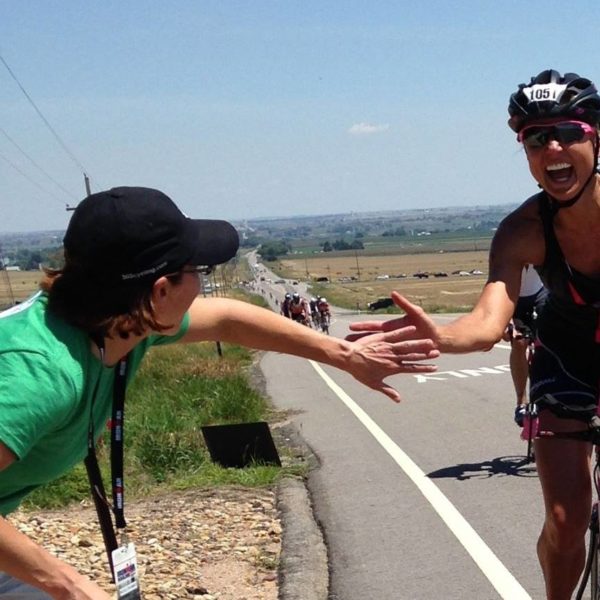
Your next race is around the corner and your mind fills with negative situations. What if I bonk? What if I get a flat? Did I train long enough and hard enough? What if it’s pouring rain and lightning? What’s going to happen if the swim isn’t wetsuit legal?
Most of us, if not all, get those thoughts that cross our mind at some point before a race, especially a race of high importance to us.
If we let negative thoughts get to us we may write our own destiny. However, there are things to do when those thoughts come to mind.
1) Ask yourself if it is a legitimate concern.
Take the flat for example. This is a situation that every triathlete may encounter, but every triathlete should know how to change a flat tire and have the appropriate equipment to do so. If you don’t, then learn how before your race.
Now you can turn the question into an “if – then” scenario instead of a “what if?” If-thens are situations that you have mentally (or physically) figured out how to handle. If-thens will be a lot less stressful than the what ifs.
If it isn’t a legitimate concern, then get it out of your mind and answer it with a positive statement. What if I didn’t train long enough or hard enough? For most with a coach or following a structured plan, that’s not often a legitimate concern. So the answer might be something like, “I’ve trained consistently and am ready for my race.”
2) Ask yourself if it is something that you have control over.
Do you have control whether a race is wetsuit legal or not? Nope, that is solely determined by the water temperature. So if you are doing a race that may have warmer than legal water, it’s a good idea to have that condition as an if-then. If the race is not wetsuit legal, then I will be fine because I swim in a pool without a wetsuit.
If the situation is something you have control over we are still back to the if-then. If that happens, I will do this.
This is “contingency planning” as I call it in Triathlon Success Strategies. Thinking through potential likely scenarios so that you have a plan of action if it were to occur. Some athletes deal with injuries, such as IT band problems. If your IT band starts acting up, what will you do? Knowing your first course of action ahead of time will greatly reduce stress that can take place during a race. Instead of getting angry that this is happening, you will know to slow down your pace or do some stretches at the next aid station.
If it is a legitimate concern and you have control over that situation, then make sure you know how it will get handled. Keep the negative “freak-out” moments at bay by walking through your contingency plans.
We all get nervous before a race, even the professionals, and those who have been racing for years. I took a look at the bib list for my next race and my heart rate probably shot up 30bpm. Channel the excitement with positive energy, turn what ifs into if-thens and you will be more prepared to race than your competition!







2 comments
Enjoyed the tips and suggestions. I am doing a Century ride this weekend in Buena Vista. It’s my first. I was concerned about whether I’d had enough consistent time in the saddle, but have decided that I know my limits, it’s the first Century for me(and this season) and it is early in the season and above all else, I’m going to have fun and enjoy the ride!
PS – missed you on Friday, but Charles did a good job to hold the pace down. Unfortunately his 80 mile ride to Deckers and back did not slow him down…No, he really was a gem!
I will not be there this Friday as I will be on my way to BV!
Glad you enjoyed the post, Maureen! It seems like you’ve got a great plan for your first century. Have a great time out there this weekend!
Comments are closed.